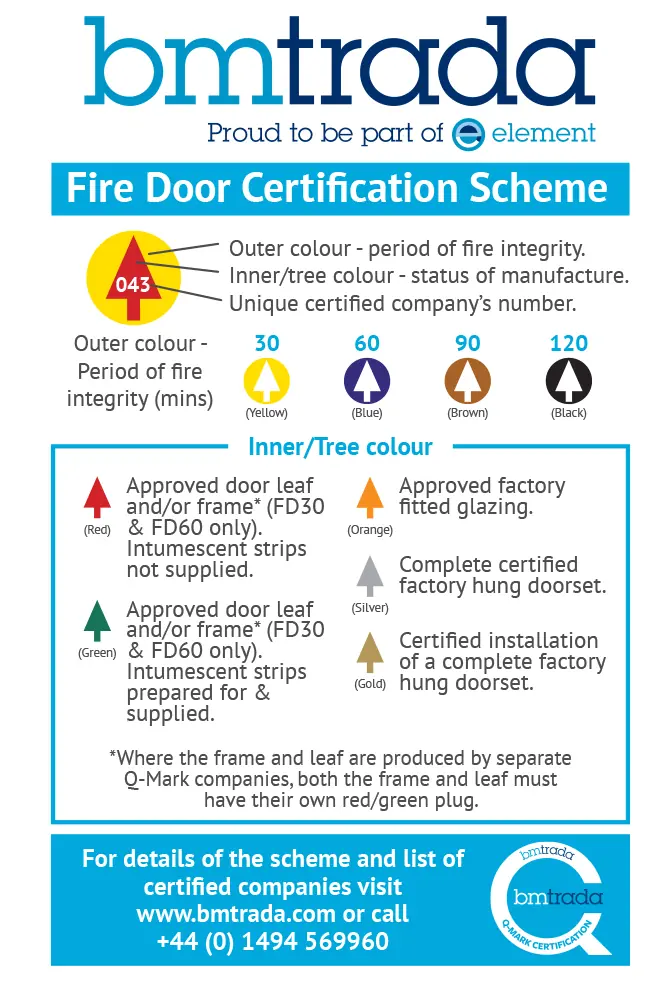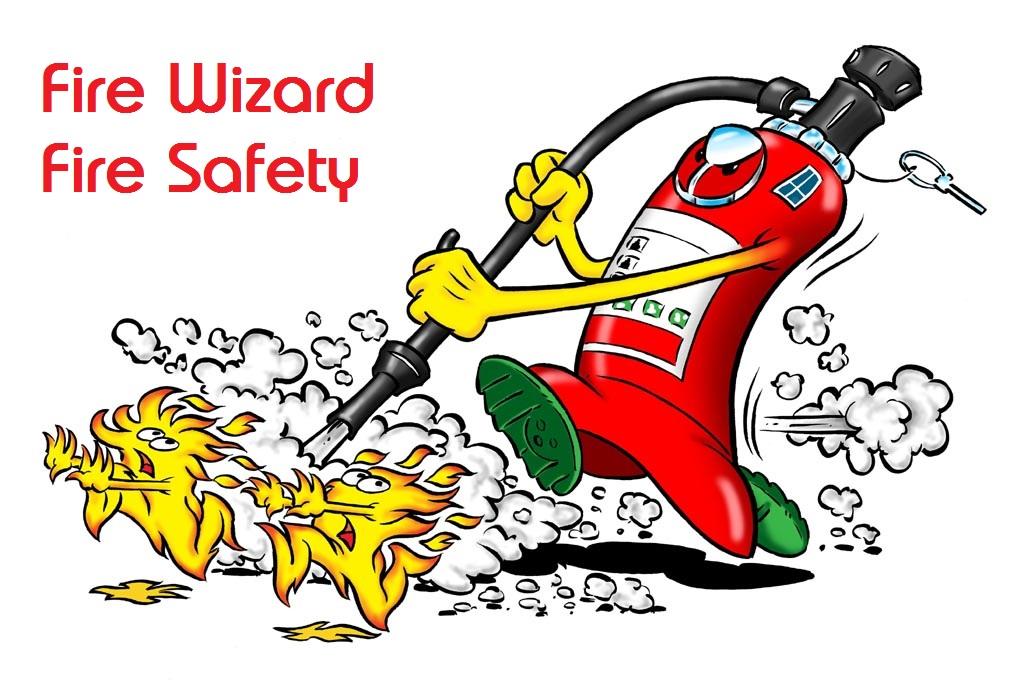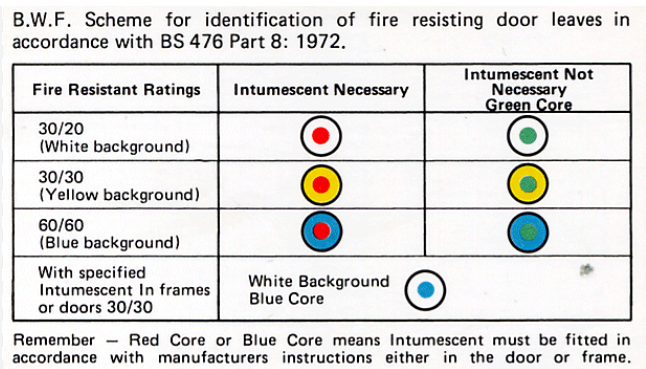-
Posts
2,304 -
Joined
-
Last visited
Posts posted by AnthonyB
-
-
On 01/03/2024 at 11:57, Paul B said:
Thanks both for your help. It is an existing building that has undergone change over the years, there is indeed a common alarm system and simultaneous evacuation. I suppose the most important element is ensuring all shared common escape routes have a minimum of 30 minutes separation?
Yes, at least a notional 30 minutes usually
-
However, if an existing building with a common alarm system and simultaneous evacuation you are fine. A new build would indeed require 60 minutes and usually then doesn't need linked alarms.
-
That's because it doesn't need to be. 30 would suit, just like a flat front door on an external balcony with only one direction of escape that has to be passed to escape.
-
They removed the reference to 'significant' findings (no doubt due to the confusion) and so all findings must be recorded - which in practice means the whole assessment.
Yes, if you are required to do a fire risk assessment under the FSO it must be written. It no longer matters if you don't have any employees, a license or whatever. This change is in part because many Responsible Persons treated the under 5 persons as meaning they didn't have to do anything at all as oppose simply not record the FRA and this included a lot of flats as well as non domestic premises.
Fill in the template in full as applicable, including any action plan and you have recorded your findings for the purpose of the FSO. Simpler in a way rather than trying to decide what you needed to record and what you didn't.
-
There is no set lifespan for devices and independent testing has shown up 25 years of reliable function - but of course devices will eventually fail, either by false alarming or not working whilst tested, so at some point things will get replaced.
Haes Sav Wire panels and Apollo Sav wire bases and s65 conventional detectors are all current manufactured kit so there is no reason not to just replace individual components as and when they fail - it's your choice if you wish to start over in one go for the fault finding extras a Fike system provides. -
Sounds like the fire alarm system is an obsolete model and needs full replacement. If you are concerned visit the Business Fire Safety page of your local fire service website to get the contact details for the Business Fire Safety Team who can advise and if required carry out a site audit and any required enforcement action.
Your company should have implemented temporary measures during the system downtime if they wished to continue to occupy the building -
Where 60 minutes fire separation cannot be achieved between the commercial & residential elements then the commercial premises must be provided with a fire alarm system that includes automatic fire detection - the system should also be extended into the flat to provide alarm sounders on each level and no less than 85dB at the bedroom doors. In listed buildings wireless fire alarms are usually appropriate - https://www.safelincs.co.uk/wireless-fire-alarm-systems/
-
-
Possibly not - if they were built in the 80's then they would have fire doors as the original doors if required.
-
Mr
in Smoke Alarms
Your Building Regulations submission should have dealt with this as part of the Design Fire Strategy.
These premises usually have a BS5839-1 fire alarm system to Category L1. Depending on the occupant profile an agreed variation may be key operated manual call points rather than break glass type. -
No, as there is no room at ground level, just the entrance:
(1) A relevant landlord in respect of a specified tenancy must ensure that—
(a)during any period beginning on or after 1st October 2015 when the premises are occupied under the tenancy—
(i)a smoke alarm is equipped on each storey of the premises on which there is a room used wholly or partly as living accommodation;
-
On 16/02/2024 at 16:13, Guest WR66 said:
Well herein lies my issue: I would be more inclined to believe the ex fire officer with the shiny buckles who enforced said statutory obligations than someone with a vested interest and potentially just looking to make a quick buck. However, it is the clear contradiction between the two opinions i am trying to get to the bottom of as it will apply to a number of my buildings.
I cannot find said industry standard guidance and based on the statutory guidance i have read (the RRO) and tried to decipher, i cannot see where i would need to have an FRA completed, let alone by a professional.
Section 9 says that the FRA must be recorded in 3 relevant conditions: 5 or more employees, enforcement notice or a license is in force. None of which apply to this building.
By what i have read, the 'FRA' may be limited to me confirming (if asked) that i have indeed thought about the fire risks and in order to protect the building and trespassers, i have locked the building as a control measure.
Please do point me in the direction of the industry standard guidance itself (ideally not from a company website who sells FRAs or fire safety products) or the statutory legislation that clarifies documented FRAs are required on empty buildings.
You are out of date - Section 9 was amended in October 2023 by s156 of the Building Safety Act requiring all findings of the FRA (no longer just the significant ones) to be recorded in all cases - the old 5 + employees, alterations notice or license requirements have gone. (Non commercial reference https://www.london-fire.gov.uk/safety/property-management/changes-to-fire-safety-law-how-it-affects-you/)
The law clearly states all non domestic premises require a fire risk assessment and the text of the Order makes no exclusion for vacant premises because of the duty to protect persons in the vicinity of a premises and not just lawfully on the premises. During COVID-19 there was a vast increase in empty buildings and the Government & Fire Services were quick to point out that risk assessments needed updating & relevant precautions.
No one says you have to pay for FRAs or use external providers - you can do these yourself for simple premises, which could include empty buildings, and insurers give useful guides (https://www.nfumutual.co.uk/globalassets/business/rms/2021-update/unoccupied-buildings-fire-safety-guide.pdf)I've asked a Fire & Rescue Service for a written opinion - once I receive a reply I will post here.
Those risk assessors who have been prosecuted have included fire service personnel, current or ex - no one is infallible!
-
It's not part of the user fault finding process.
(https://fireandelectrical.co.uk/wp-content/uploads/2018/07/Twinflex-Pro-User-Manual.pdf)It can be traced on devices by engineers
(https://fireandelectrical.co.uk/wp-content/uploads/2018/07/Twinflex-Pro-Installation-Manual.pdf)
Twinflex is a bit off - it's an analogue conventional and does have some features beyond a standard one (the original twinflex panels showed not only the zone of fire, but whether it was a call point or detector)You could keep the cable but would have to replace every single device as well as the panel if you want to swap to Twinflex - however you just need a decent engineer to find the faults, you shouldn't need to bin the whole thing - plus if the faults are on the zone cabling you will still have all the same issues, so if biting the bullet and replacing everything you might as well go the whole hog and re cable so it's all correct.
-
7 hours ago, Gary Morley said:
On my recent FRA Course I was told that fire rated MDF Frames can only be used on private premises and not in commercial buildings, can someone confirm and elaborate please.
cheers
Who on earth told you that? As long as the frame has the correct fire performance rating for the location, is compatible with the other components of the door set & is correctly installed then it's fine - Building Regulation & Fire Safety Guidance specifies primarily by performance, not by type of material.
-
No - Approved Document B allows these to be treated as a protected shaft where the walls and doors to the sides need to be fire resistant, but the shaft can be open all the way up.
Far too many risk assessors have wasted considerable amounts of client money on unnecessary floor stopping -it's not cheap and for retrospective installs quite difficult too.
-
Be careful - whilst Sav Wire, Bi-Wire and Alarmsense are all conventional systems using just 2 wires for detection, call points & sounders they are NOT compatible, using different methods of operation: Some use differing voltage drops, others use reversing of polarity.
If your existing system is Sav-wire then neither a Fike Bi-wire or an Apollo Alarmsense compatible panel will work unless you changed every field device as well.If you want to know the exact device in fault you need to move to an addressable system, requiring a new panel and field devices, but possibly able to use the cabling if looped out (or spurred off a loop with suitable isolators)
Also the panel may well not even been the cause of the fault, it may be a wiring or device issue - your alarm engineer, if any good, would be able to find the fault which might be something cheap & simple.
-
Yes, if the compartmentation is adequate (60 mins) between the shops & flats. The commercial units FRAs should have already looked into this as the flat occupiers are relevant persons under the legislation, however many are non existent or poor so may have overlooked this.
As there are no internal common areas the Freeholder has no doubt assumed they have no requirement to do an FRA and as they don't have control over the premises they didn't used to, but as the building has two or more dwellings they may be required to assess the external wall construction.
-
Whilst many conversions post '91 are to ADB for stay put there are also a fair number that aren't for a variety of reasons - whilst it's more likely to be stay put and not require a common alarm the risk assessment shouldn't assume this and should check the structure, layout and smoke control provisions are adequate.
I've assessed modern conversions in old buildings that haven't been able to have the right layout and smoke control for stay put due to the age of the building & listing so were designed and equipped for full evacuation.
-
I'll admit I didn't think of checking the Q mark plugs as they seem even rarer than the older BWF ones

-
Building Inspector? Is the premises being fitted out and subject to a Building Regulations application? If not they shouldn't be involved.
Also, unless there is a known issue with malicious use of call points there are no grounds to even consider them being removed - and even then it's not the first step.
I'd be minded to ignore them, they don't hold the liability for the premises (or disabled them on the panel until their involvement is over & then put them back on!) -
I've not heard that one before! I'd request them to provide the source (in Government Guidance, not just an assessors opinion) of this requirement.
-
Based on the sources I used, yes.
-
-
This video includes resetting the call point




No spare fuse for a D LD2 Fire saftey system
in Fire Alarm Systems
Posted
As long as it's not off a pre payment meter it's tolerable.